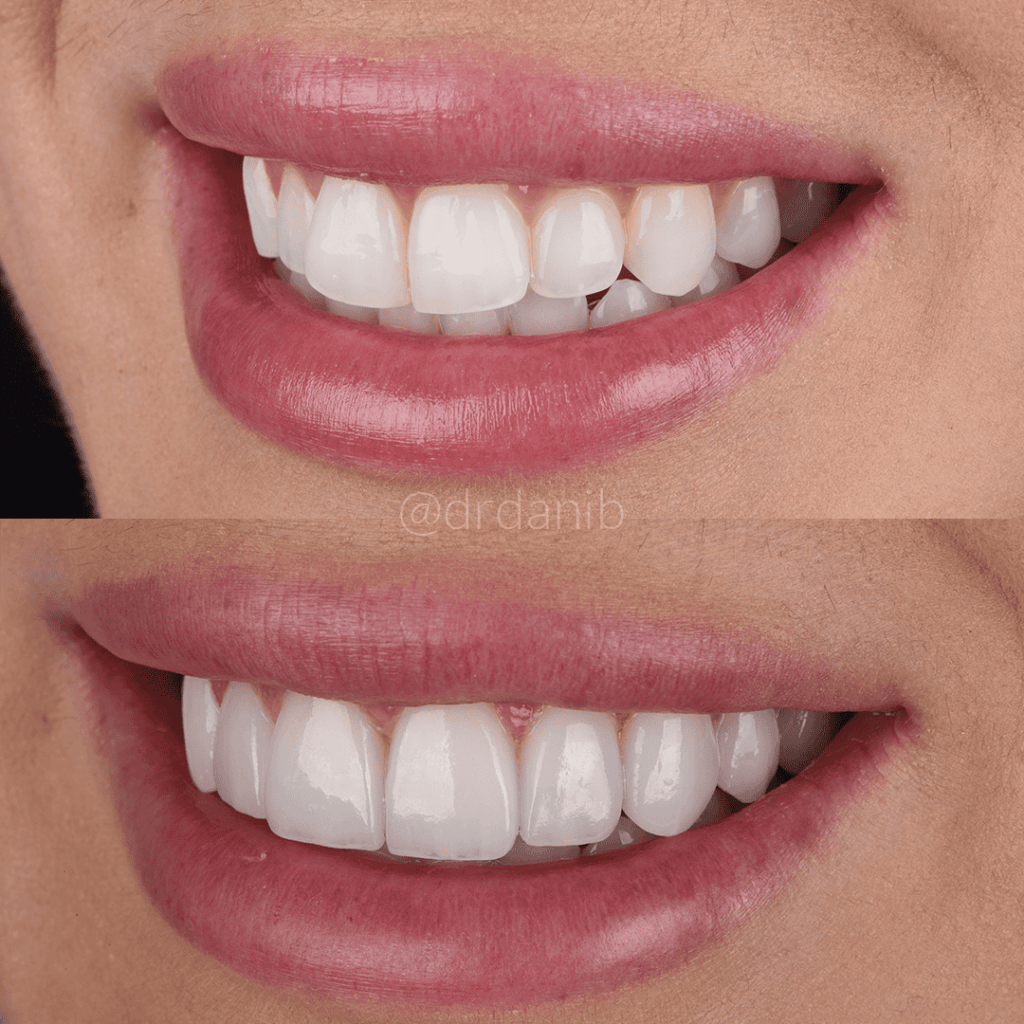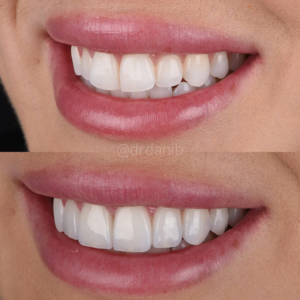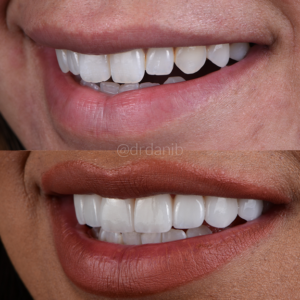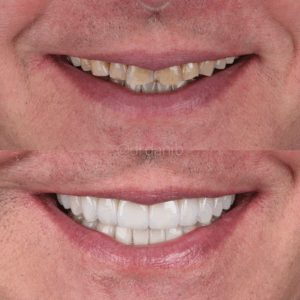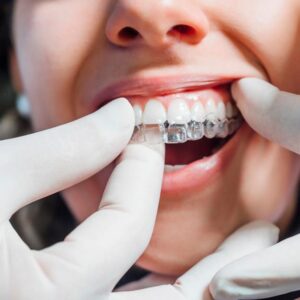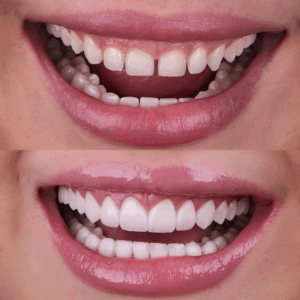When faced with significant tooth loss, the decision of how to restore your smile can feel overwhelming. Beyond aesthetics, missing teeth can compromise your overall health, affecting everything from your speech and nutrition to your self-confidence. In Los Angeles, you have several excellent options for full-mouth restoration, each with its advantages and considerations.
Dr. Dani B. is an expert in helping people choose the best full-mouth option for them. This comprehensive guide will compare dental bridges, traditional dentures, and the advanced All-on-X dental implants, helping you understand which solution might be the best fit for your unique needs.
Understanding the Options: A Quick Overview
Before diving into the details, let’s briefly define each full-mouth solution:
- Dental Bridges: These are used to replace one or a few missing teeth, typically anchored to adjacent natural teeth or dental implants.
- Traditional Dentures: These are removable prosthetics designed to replace partial or full arches of missing teeth, resting directly on the gums.
- All-on-X Dental Implants: This is a fixed full-arch prosthetic solution where a complete set of new teeth is securely attached to a strategic number of dental implants (usually 4 to 6, hence the “X” for variable number) surgically placed in the jawbone.
Dental Bridges
What They Are: Dental bridges consist of one or more prosthetic teeth (pontics) that “bridge” the gap created by missing teeth. They are supported by dental crowns placed on the natural teeth adjacent to the gap, or in some cases, by dental implants.
When They’re Used: Dental bridges are an excellent option for individuals with limited tooth loss, typically for replacing one to three adjacent missing teeth. They are most effective when the surrounding natural teeth are strong and healthy enough to support the bridge.
Pros:
- Non-surgical (if tooth-supported): For bridges anchored by natural teeth, no surgical procedure is required, making it a less invasive option.
- Faster treatment timeline: The process of getting a dental bridge is generally quicker than dental implant procedures.
- Lower upfront cost: Compared to dental implants, a traditional dental bridge often has a lower initial cost.
Cons:
- Requires altering healthy teeth (if tooth-supported): To support the bridge, the adjacent natural teeth must be prepared (reduced in size) to accommodate the dental crowns. This is an irreversible alteration to otherwise healthy tooth structure.
- Doesn’t prevent bone loss: Unlike implants, dental bridges do not stimulate the jawbone, meaning bone loss in the area of the missing tooth can still occur over time.
- Not ideal for full-mouth or full-arch cases: Bridges are best suited for smaller gaps and are not a practical solution for widespread or complete tooth loss.
Best for: Individuals with small gaps in their smile, good overall oral health, and strong adjacent natural teeth that can support the restoration.
Also Read: Is a Full Mouth Restoration Possible With Dental Implants?
Traditional Full Dentures
What They Are: Traditional dentures are removable prosthetic devices that replace an entire arch of missing teeth (full dentures) or a section of missing teeth (partial dentures). They consist of artificial teeth set in a gum-colored acrylic base that rests directly on the gums.
Types: You can get full upper or lower dentures, or partial dentures that fit around existing natural teeth.
Pros:
- Most affordable: Traditional dentures typically represent the lowest upfront cost among full-mouth restoration options.
- Non-invasive, no surgery required: There is no surgical procedure involved in getting traditional dentures.
- Quick to fabricate: Dentures can often be fabricated and fitted within a relatively short timeframe.
Cons:
- Can slip or feel unstable: Dentures rely on suction and the natural contours of your mouth for retention, which can lead to slipping, clicking, or discomfort, especially when speaking or eating.
- Can irritate gums: The constant pressure and movement of dentures can cause gum irritation and sores.
- Doesn’t preserve jawbone—leads to bone loss: Because dentures do not stimulate the jawbone, the bone beneath them will gradually resorb (shrink) over time. This bone loss can lead to changes in facial structure and affect the fit of the dentures.
- Reduced bite force and chewing function: The instability of dentures can significantly reduce your ability to bite and chew effectively, limiting your dietary choices.
Best for: Patients seeking a budget-friendly, non-invasive, and removable solution for significant tooth loss, or those who are not candidates for surgical procedures.
All-on-X Dental Implants
What They Are: All-on-X is a revolutionary technique for full-arch tooth replacement. It involves surgically placing a minimal number of dental implants (typically 4 to 6) in the jawbone, which then serve as anchors for a custom-designed, fixed full-arch bridge or denture.
“X” Explained: The “X” in All-on-X denotes the variable number of implants used. While All-on-4 is a common approach, some cases may require 5 or 6 implants depending on the patient’s jawbone density, anatomy, and the specific requirements of their full-mouth restoration in Los Angeles. Dr. Dani B., a leading cosmetic dentistry professional in Los Angeles, specializes in these advanced techniques.
Pros:
- Permanent and stable—feels like real teeth: All-on-X implants provide unparalleled stability and feel remarkably like natural teeth, eliminating the common issues of slipping or discomfort associated with traditional dentures.
- Preserves jawbone and facial structure: The dental implants stimulate the jawbone, preventing the bone loss that often occurs with missing teeth and traditional dentures. This helps maintain the natural contours of your face and avoids the “sunken” appearance that can result from bone resorption.
- Restores natural speech and chewing: With a fixed and stable arch of teeth, you can speak clearly and enjoy a full range of foods, significantly improving your quality of life and nutrition.
- Often done in a single day (“Teeth in a Day”): In many cases, patients can receive their dental implants and a temporary set of teeth on the same day, allowing for an immediate transformation of their smile. This “Teeth in a Day” concept is a significant advantage for those seeking efficient full-mouth restoration in Los Angeles.
Cons:
- Higher upfront cost: All-on-X dental implants represent a greater initial investment compared to dental bridges or traditional dentures. The cost of All-on-X dental implants in Los Angeles can vary depending on the complexity of the case and the specific materials used.
- Requires sufficient bone or bone grafting: Successful implant placement depends on adequate jawbone density. If bone loss is extensive, a bone grafting procedure may be necessary, which adds to the treatment time and cost.
- Surgical procedure: As it involves surgery, it may not be suitable for individuals with certain underlying health conditions that could complicate surgical recovery.
Best for: Patients requiring full-mouth rehabilitation, those frustrated with the limitations of traditional dentures, and individuals seeking a long-term, stable, and natural-feeling solution for complete tooth loss. An experienced All-on-X dentist, like Dr. Dani B, can assess your candidacy.
Also Read: Why All-on-X Is the Leading Solution for Full Mouth Restoration
Comparing the Three: What Matters Most
So, should I get dentures or implants? When considering the best full-mouth restoration options in Los Angeles, it’s important to weigh several factors:
Key Factors to Consider
- Number of Missing Teeth: For a single missing tooth or a small gap, a dental bridge might be sufficient. For full arch or full-mouth restoration, All-on-X or traditional dentures are more appropriate.
- Bone Health: If you have sufficient jawbone density, All-on-X dental implants are often the preferred choice due to their bone-preserving benefits. If bone loss is significant and grafting is not an option, traditional dentures become more viable.
- Budget: While traditional dentures are the most affordable upfront, consider the long-term value. All-on-X, despite its higher initial cost, can be a more cost-effective solution over time due to its durability and longevity, compared to the recurring costs of denture adjustments, relines, and replacements.
- Lifestyle: Are you comfortable with a removable appliance that requires daily cleaning and potential adhesives, or do you prefer a fixed, permanent solution that functions like natural teeth?
- Overall Health: Certain health conditions (e.g., uncontrolled diabetes, severe autoimmune disorders) or habits (e.g., heavy smoking) can impact the success of surgical procedures like dental implant placement. Your dental professional will assess your suitability.
What About Insurance and Financing?
Dental insurance often provides some coverage for dental bridges and traditional dentures. However, dental implants, including All-on-X, are typically considered elective cosmetic procedures and may not be fully covered by insurance.
Many dental practices, including Dr. Dani B.’s, understand the financial considerations of full-mouth restoration and offer various third-party financing options (such as CareCredit) or in-house payment plans to make these advanced treatments more accessible. It’s important to discuss the cost of All-on-X dental implants in Los Angeles and available payment options during your consultation. Remember to compare the long-term cost-effectiveness of All-on-X versus the ongoing expenses and potential replacements associated with traditional dentures.
Who Is the Best Candidate for Each?
- Dental Bridge: Best for individuals with a few missing teeth, strong and healthy surrounding teeth to act as anchors, and no significant bone loss in the gap.
- Traditional Dentures: Ideal for those with full arch tooth loss who may not be candidates for surgery, or who prefer a budget-friendly, removable, and immediate solution for short-term needs.
- All-on-X Dental Implants: The superior choice for patients with full arch or full-mouth tooth loss who desire a fixed, natural-feeling, and long-lasting solution, and who have good bone health (or are willing to undergo bone grafting if necessary). This option truly mimics the function and feel of natural teeth.
Conclusion: Which Option Is Right for You?
Every patient’s situation is unique, and there is no one-size-fits-all answer when it comes to full-mouth restoration.
The most important step is to consult with a skilled professional who specializes in full-mouth restoration options. Dr. Dani B.’s office offers comprehensive consultations to explore what’s possible for your case, compare dental bridges versus All-on-X options in detail, and help you make an informed decision about whether you should get dentures or implants.
Restoring your smile is more than just a cosmetic enhancement; it’s a significant investment in your long-term health, confidence, and overall well-being. Take the first step towards a healthier, happier smile by scheduling a consultation today.


